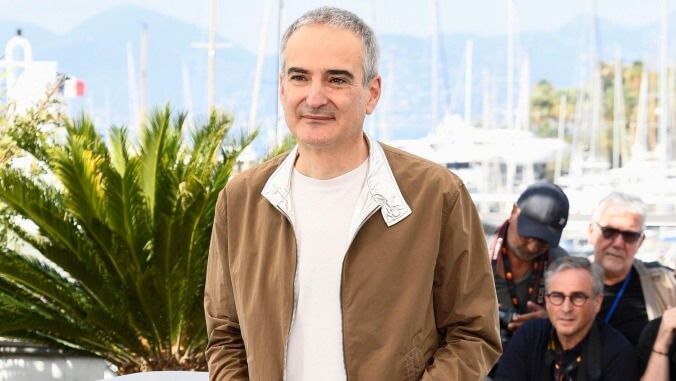Olivier Assayas says auteur filmmaking is "in crisis"
The Irma Vep director pegs cinema's challenges to financing and distribution

Certain battle lines have been drawn in the current state of cinema–theaters vs. streaming, indies vs. franchises, etc.—but most would agree that the movie business is definitely changing. Olivier Assayas, the latest major filmmaker to dip his toes into television, has a few thoughts on the subject.
Assayas recently reimagined his 1996 film Irma Vep as a series starring Alicia Vikander, but he tells The Los Angeles Times he currently has “no plan” to make another series, and “will be happy to make a feature format movie.” But he also sees the medium evolving: “We are in a moment of very deep transformation of whatever we call cinema, in terms of aesthetics, in terms of financing, in terms of viewing.”
One of the things making the state of cinema “difficult” is still COVID, “which to me is self-evident and not mentioned enough,” Assayas observes. “I don’t think the film audience has recovered from lockdown. It’s the same for theater, for concerts, everything that has to do with sitting in a theater for two hours will stay in trouble and has to be patient for the audience to gradually come back.”
More broadly, “The difficulty is the way movies are financed nowadays,” he says. “There is very little space for ‘auteur’ filmmaking or independent filmmaking in the way things seems to be evolving right now. Those are the core of whatever cinema is about. And it’s in crisis because the money is not there. The distribution formats are not there. So it’s a moment of a lot of soul searching in terms of what cinema will be, where it’s heading and what is its future.”
An actual director would know best about where the money is in the industry, but it’s not hard for an outside observer to get a sense of situation. Certainly, a new generation of auteurs has been able to muscle their way in, like Jordan Peele, Greta Gerwig, Barry Jenkins, and the Safdie Brothers, to name just a few. But many potential auteurs–like Taika Waititi, Chloe Zhaó, Ryan Coogler, Destin Daniel Cretton, and Nia DaCosta–have been snapped up relatively early in their careers by the Marvel machine and made to sublimate their visions to the franchise, in varying degrees.
On the more positive side, Assayas notes, “I think that filmmaking is changing. I think that globalization of cinema is an important factor and I’ve been kind of surfing on it.” He goes on to say, “You can make multinational films, and they can be a really exciting source of inspiration, and it can get financed. It’s a format where you mix languages and you mix cultures. Who wants that? Basically everybody. Everyone wants that because that’s how people live nowadays. That’s where the culture is.”